I'm ready to fix that now, but this trip happened so long ago that I'm now a bit fuzzy on the details. So, I can't actually direct anyone to the places I visited - good travelers experienced in Taiwan should have no problem, though! That said, this post is just not up to the level of quality detail I try to bring to my travel posts, and I'm sorry about that.
So, here goes:
About a year ago we took the train to Taidong, rented a car, and wandered the southern East Rift Valley before taking a scenic road over the mountains to the East Coast, driving down to Taimali before returning to Taidong, dropping off the car and taking the Puyuma Express home. We had four days in total, two of which involved train trips, one full sightseeing day which was merely okay (it poured on and off) and one which was amazing.
On the train down I couldn't help but note the tendency to put factories in some of the most scenic spots:
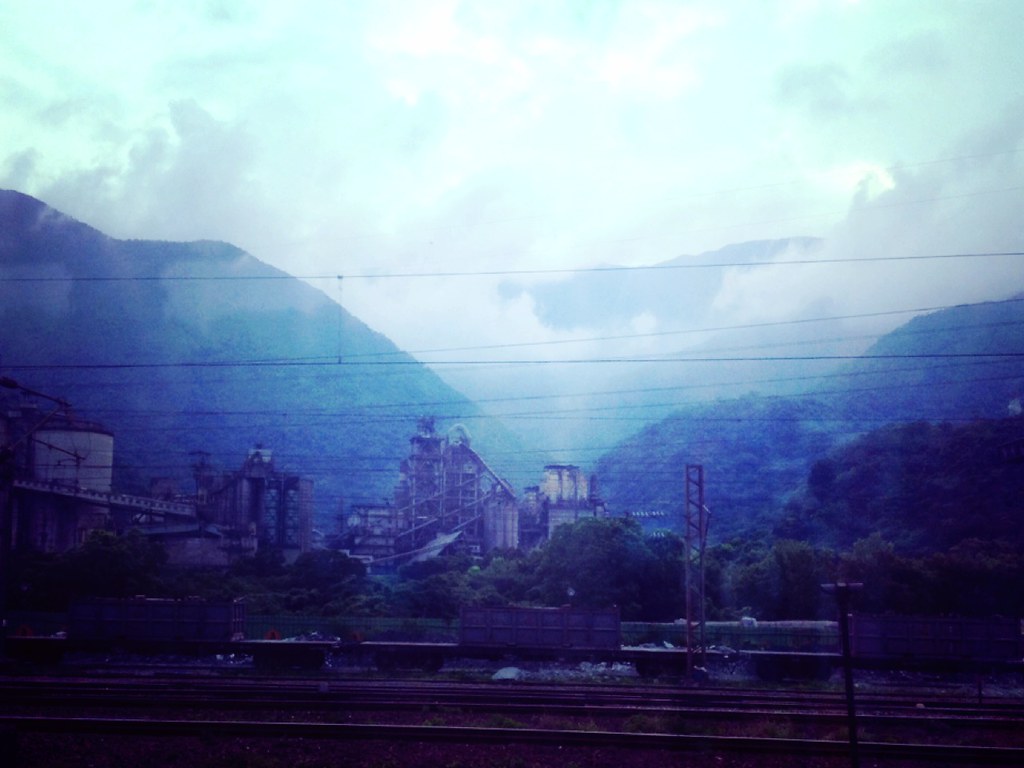
We got to Taidong, went to the night market (at least Brendan and I did, our friend Joseph stayed at the hotel), woke up in Taidong, rented a car from CarPlus and were on our way. Or, at least we were in fits and starts thanks to wildlife blocking the road:
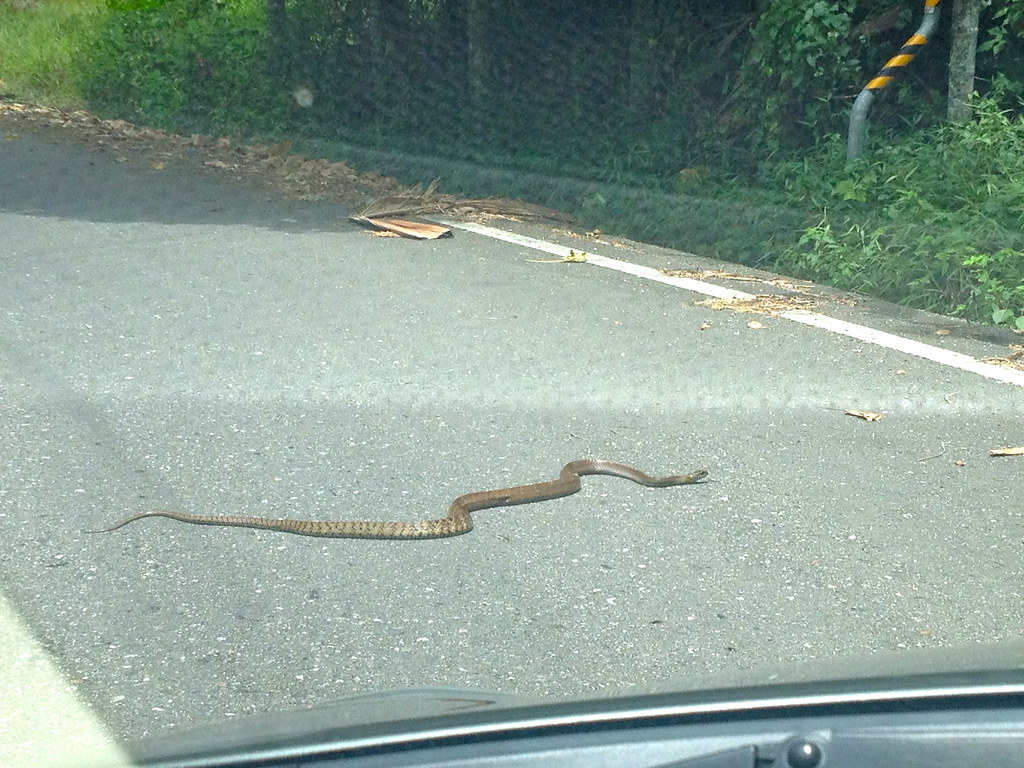
I believe, but cannot be sure, we took the 197 from Taidong up over the mountains to the southernmost edge of the East Rift Valley - we missed the turn-off for the bridge to Luye (鹿野) and ended up on a stretch that was more like a forest trail than a road - completely unpaved and grassy in spots. Storm clouds loomed overhead. It was pretty scenic though.
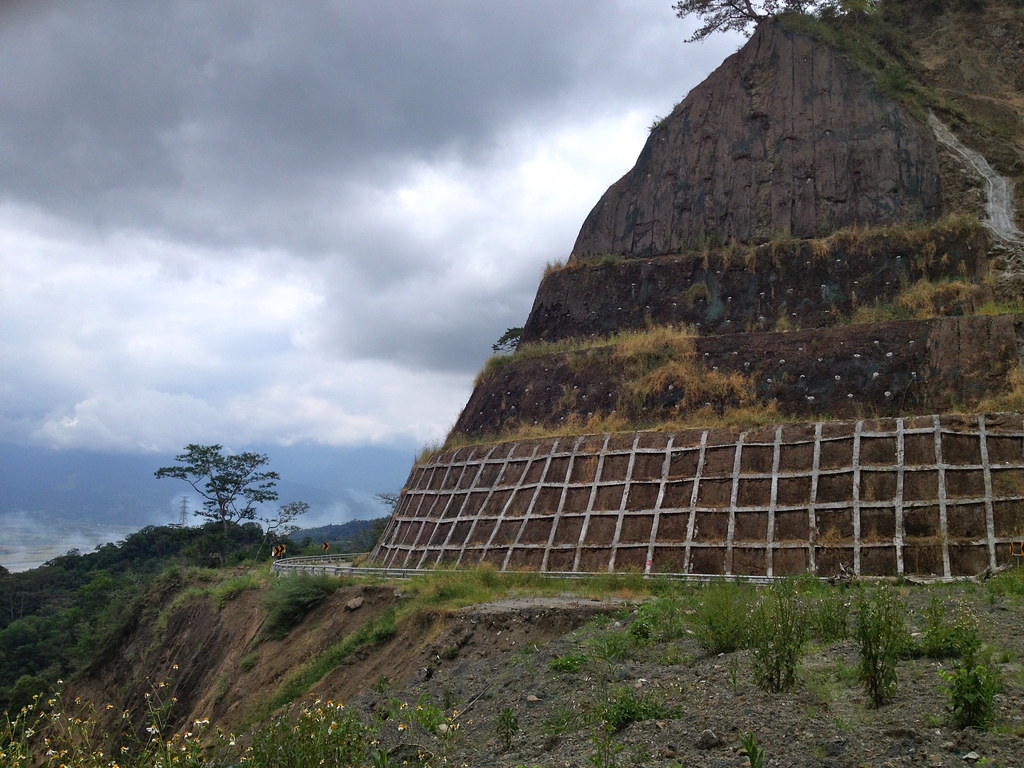
We passed a few Indigeous villages and came down a steep set of switchbacks to another bridge, which I drove across screaming with my hair in my face thanks to the open window, and headed south back to Luye. The main thing to do in Luye is to go to the Luye Gaotai (Luye Pavilion, or 翱翔飛行傘鹿野高台) where in theory parasailing and hot air ballooning are possible, tea is grown, and the scenery is supposed to be nice. You can also sled down a grassy slope, which looked kind of fun. Given the weather, we didn't see any sort of air-based sports. The scenery was nice, but honestly I was a bit underwhelmed. Also, we couldn't find a decent meal in the whole town and got some underwhelming noodles.
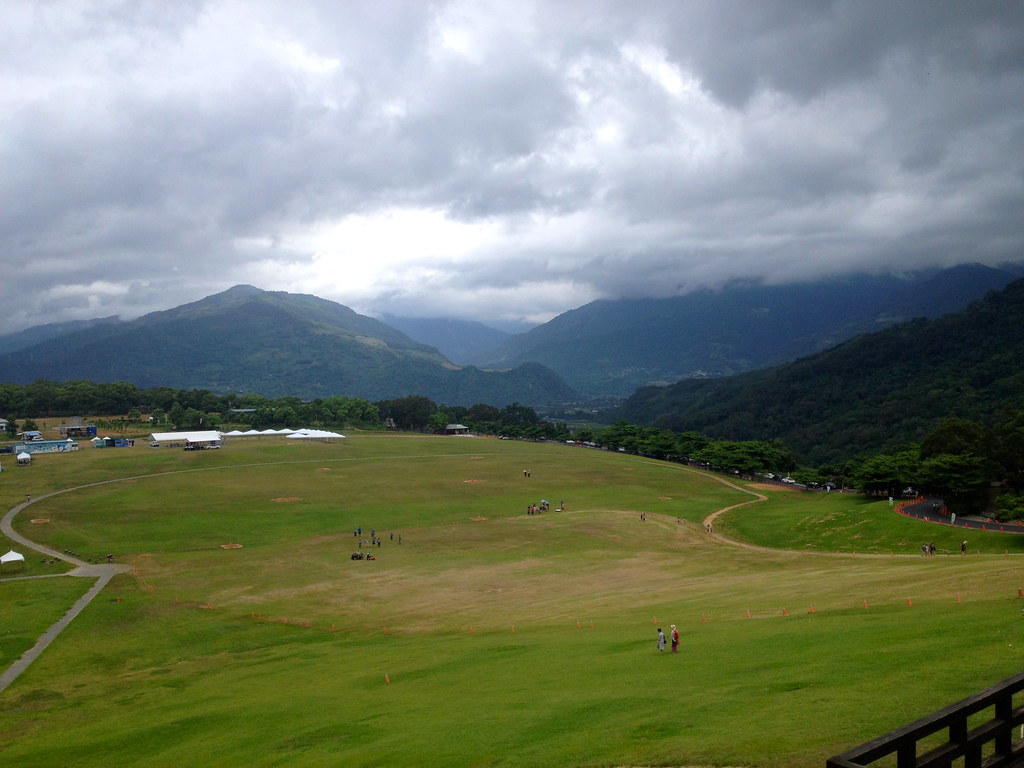
We then drove up to Guanshan (關山) where we checked into our next hotel - a homestay, really, well out of town and off the highway. You'd need a car to get there. I can't find it on Google Maps and I can't remember the name, so you'll just have to trust me that there is a pretty good homestay in Guanshan if you have your own transport (it would also be easy work for cyclists).
In Guanshan it rained on and off - the most interesting thing I noted was how you could see far down the valley and across to the mountains on the other side, so you could see the storm cells moving about like mobile fire sprinklers. The advantage of this, other than being lovely and scenic, was that you could tell when you were about to get soaked.
Guanshan has a bicycle trail for tourists that is quite popular, so we walked around that - the on-and-off rain made cycling unappealing, and from our homestay we weren't near the place to rent them - and saw some more local, uh, wildlife.
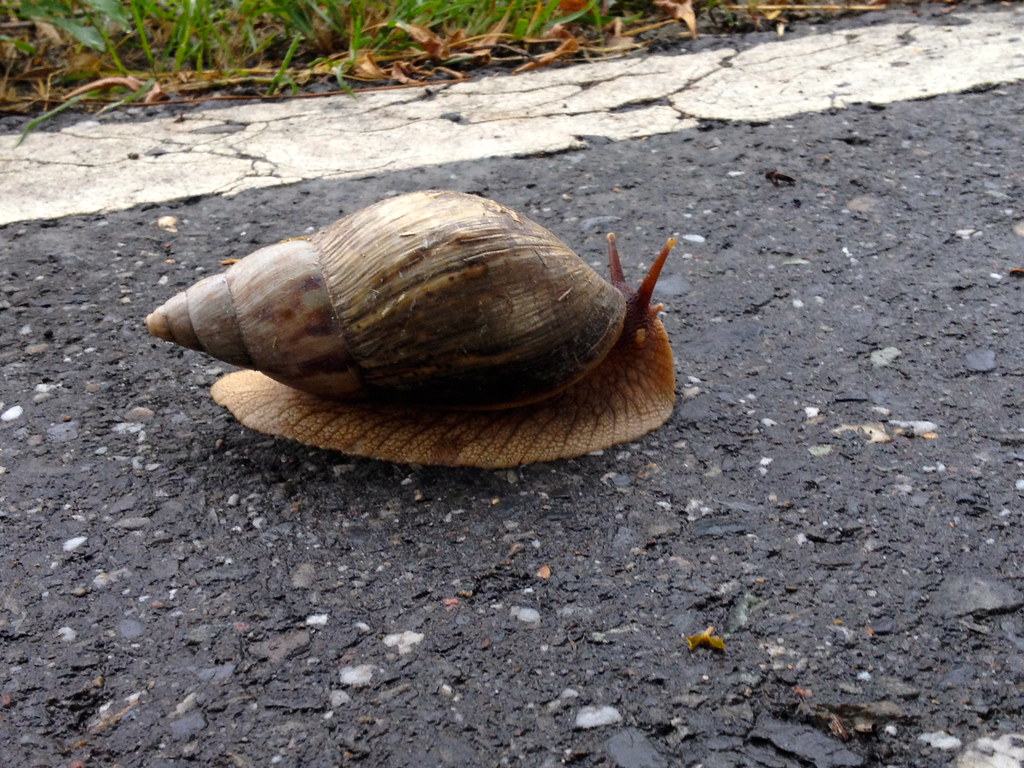
Rain making its way down the mountains near our homestay.
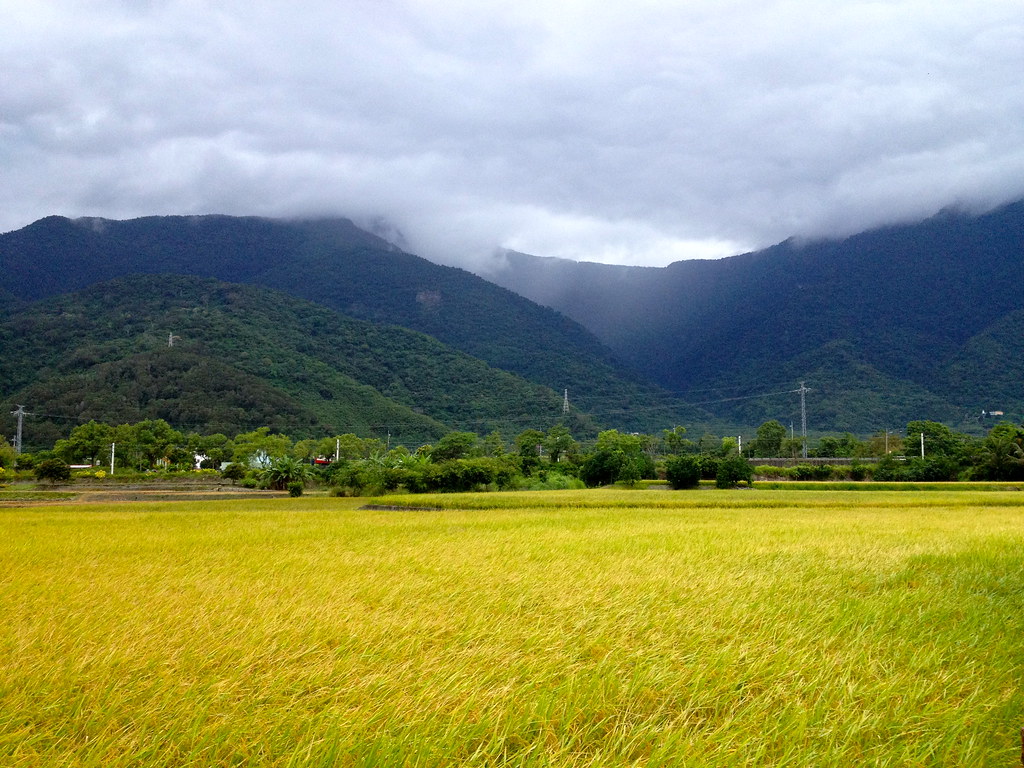
The train passing through the valley as it rains on the mountain ridges.
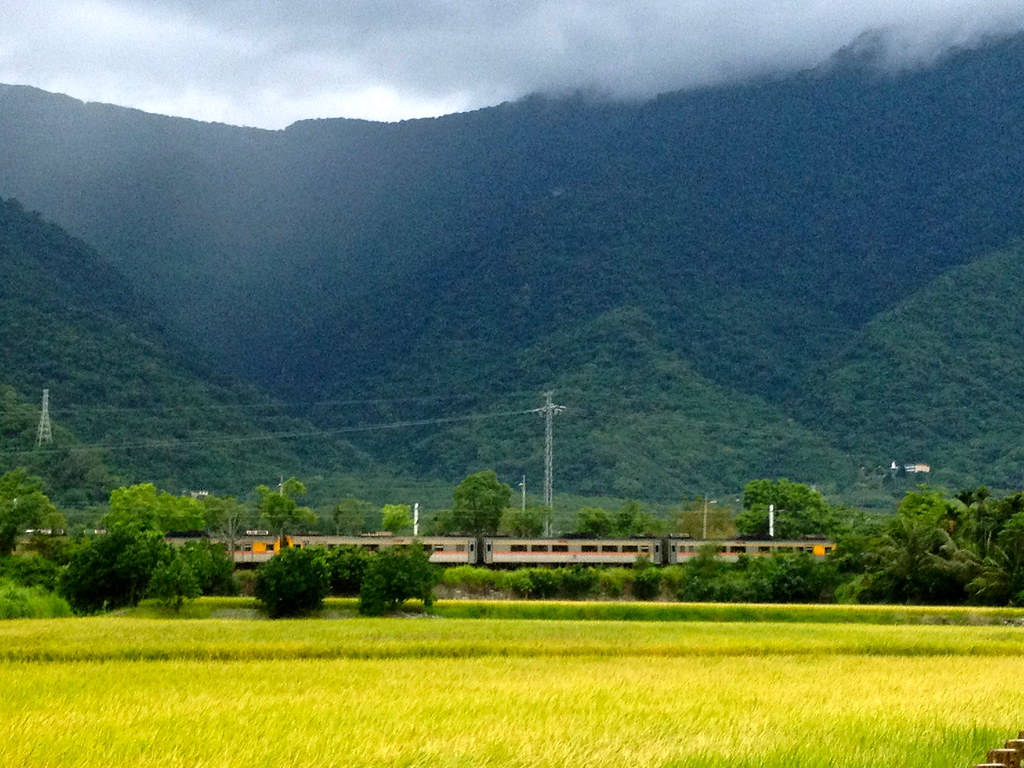
I imagine this is what it's like living in a flat area, such as the Midwest, and watching rainstorms come in - something you can't do where I'm from, with hills blocking the view.
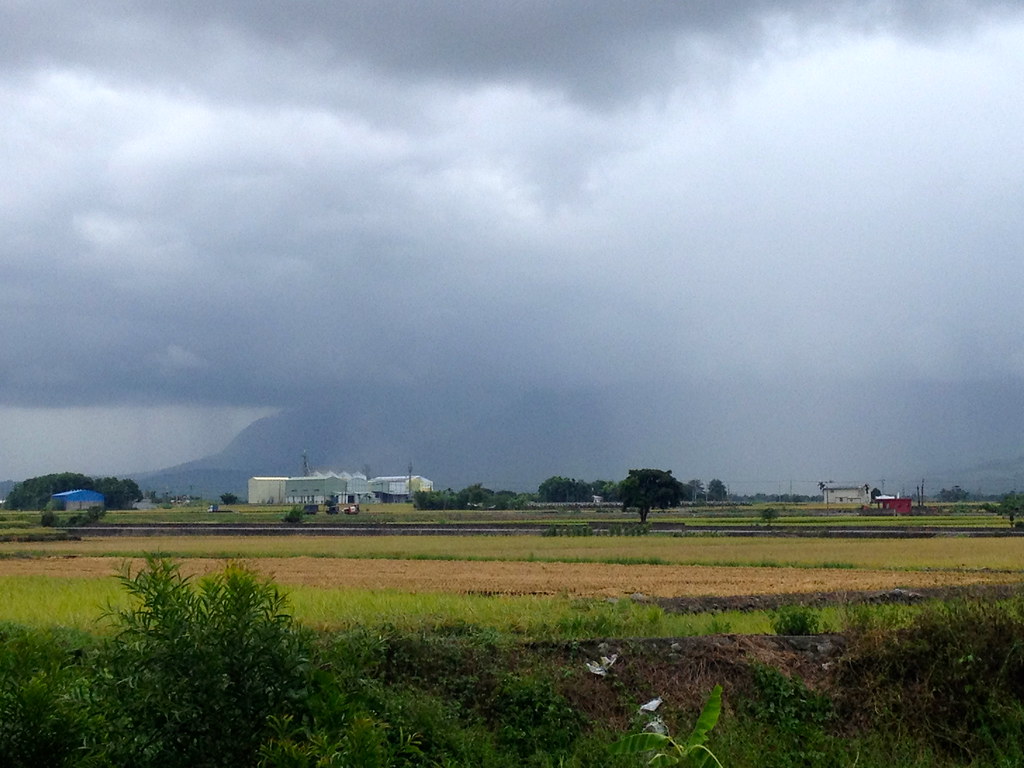
Just before we ourselves got soaked, we spotted this interesting-looking building out in the fields. We determined it was a Hakka restaurant, and our homestay owner said it was pretty good. The rain made us not really want to go back out once we returned to the homestay and changed into dry clothes, but it's not like you can get pizza delivery in Guanshan, so we got in the car and drove out here for dinner. It caters to larger groups but overall it was quite good.
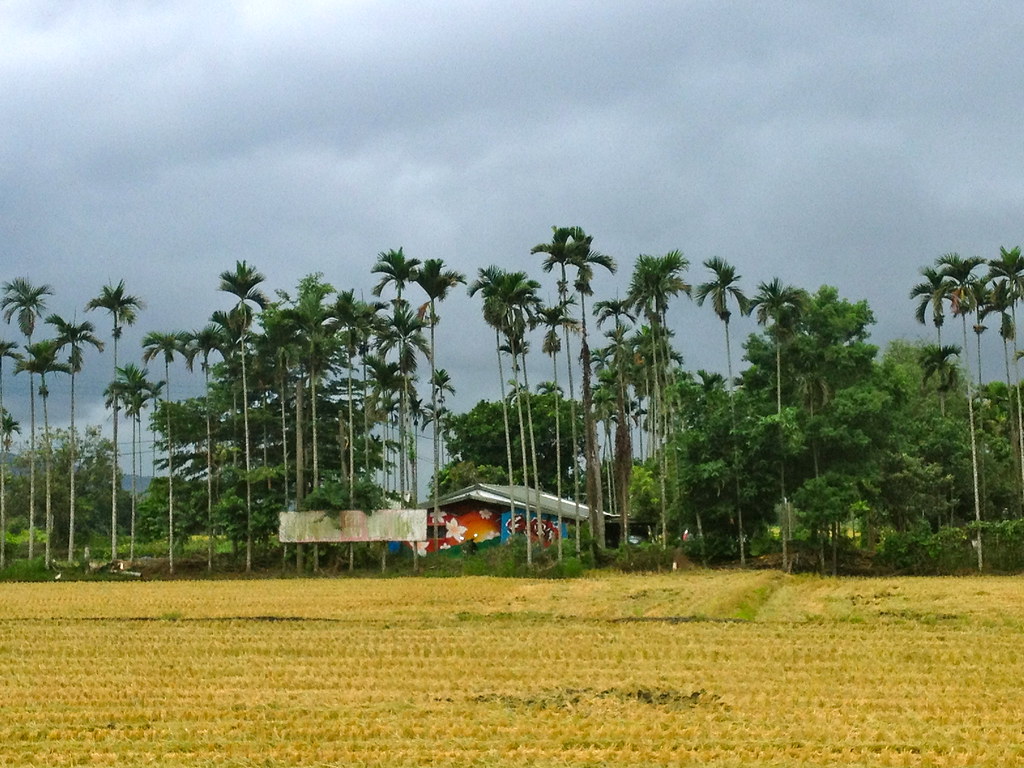
Whereas this is just terrifying:
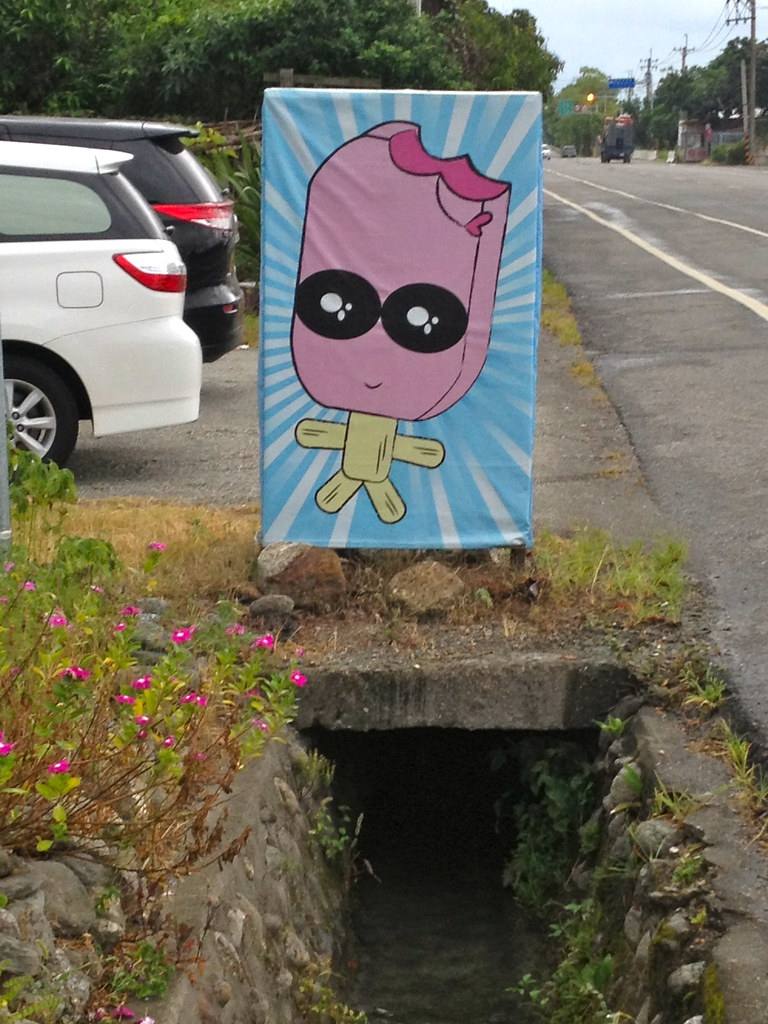
GOOD LORD JESUS:
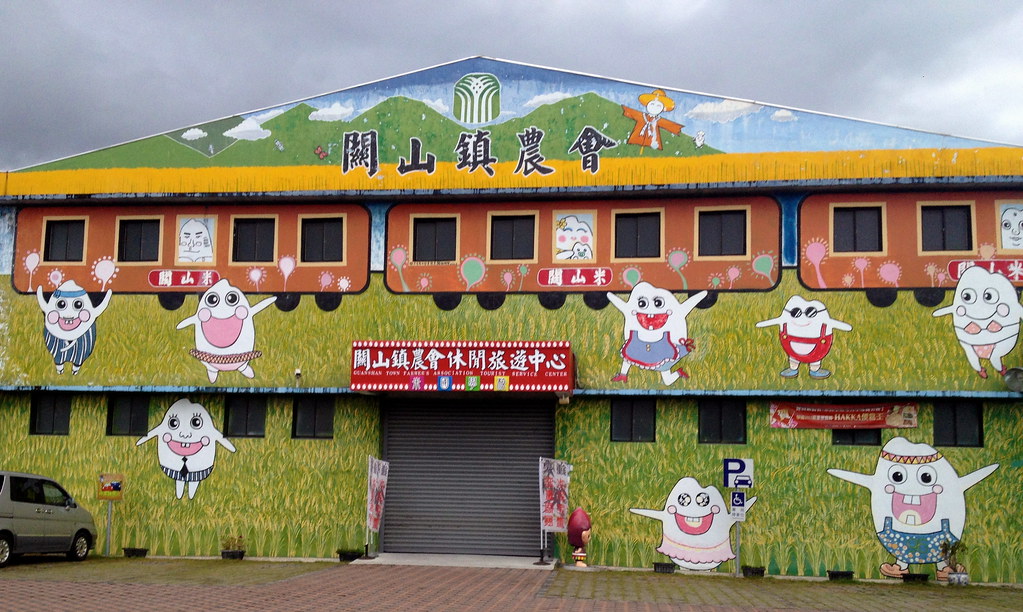
...apparently this is some sort of thing owned by the Guanshan Farmers' Association - kids come here on field trips to learn about rice farming, I suppose.
We ran back to our homestay as the rain really set in. This guy, however, continued working.
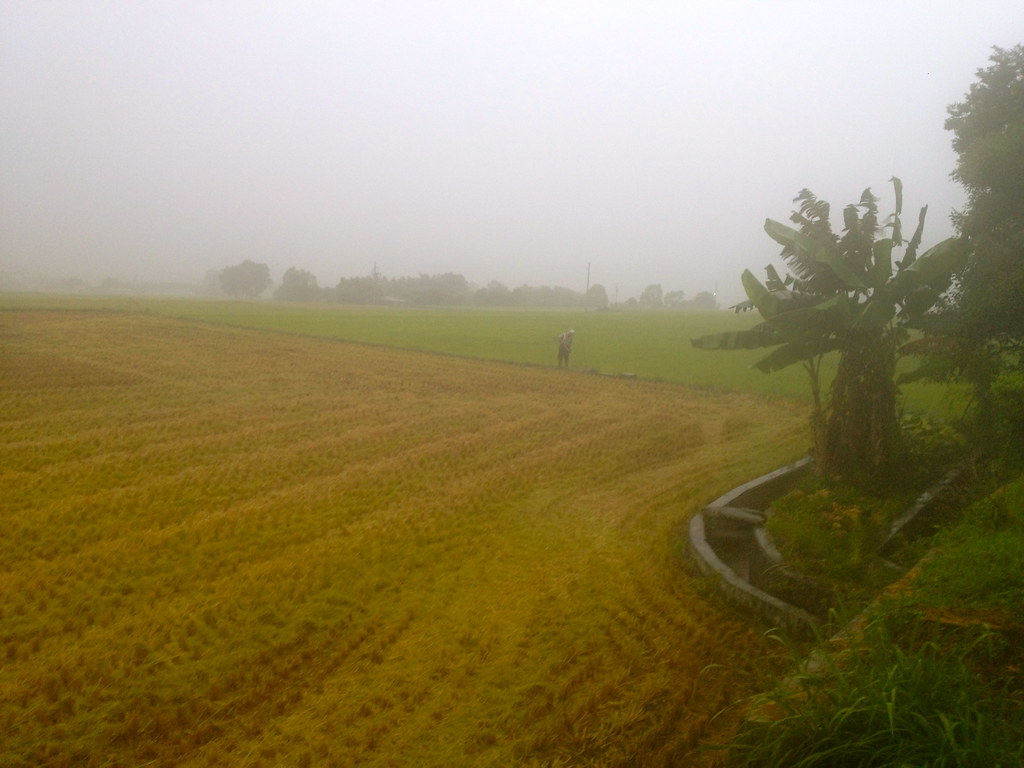
Fortunately the next morning brought perfect weather and azure skies. We got to see our homestay's garden and pet peacocks before checking out:
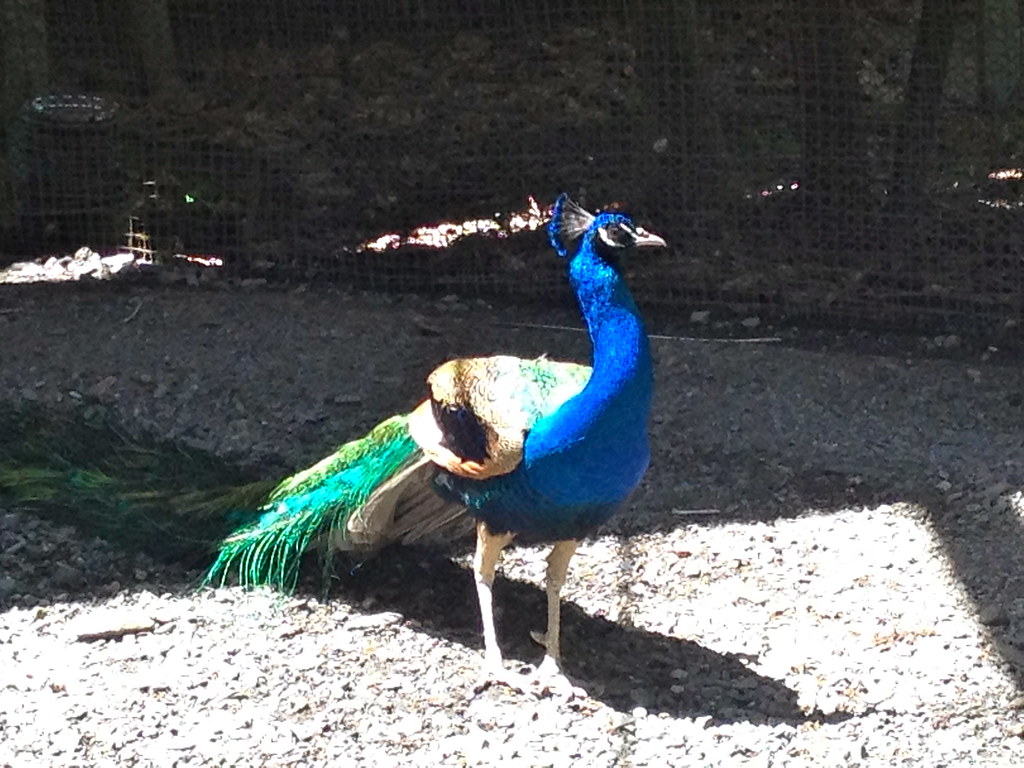
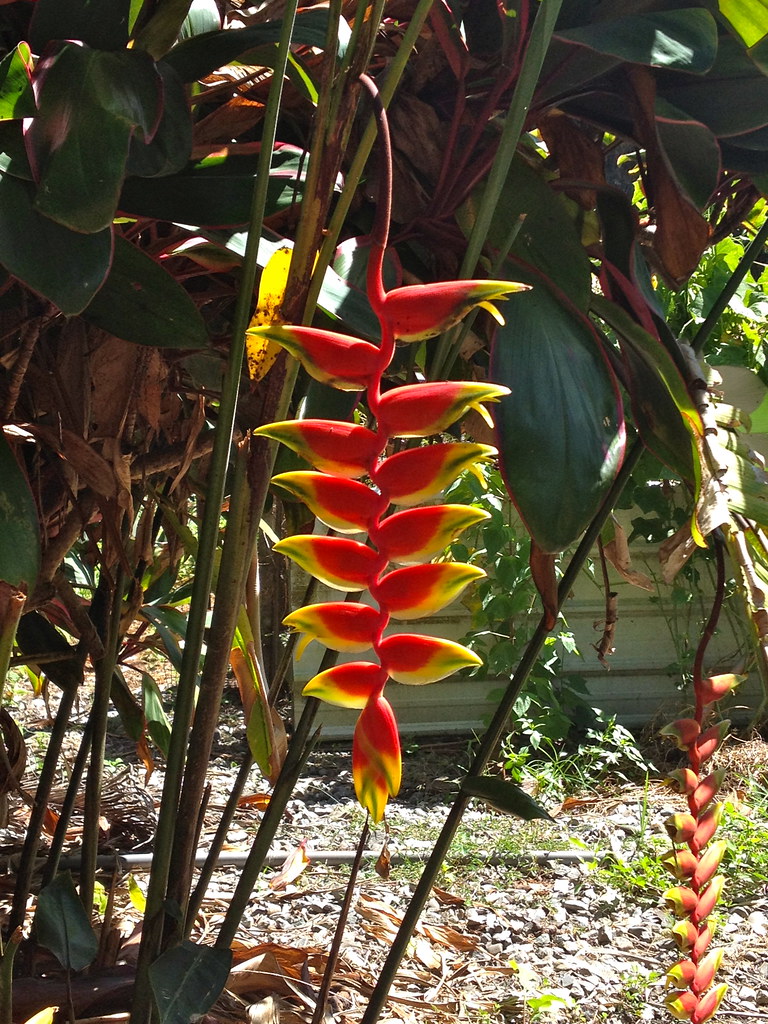
We then drove up to Chishang (池上), which is something of a tourist destination. I liked the old cluster of houses downtown, which we walked through very peacefully, and the views on the drive.
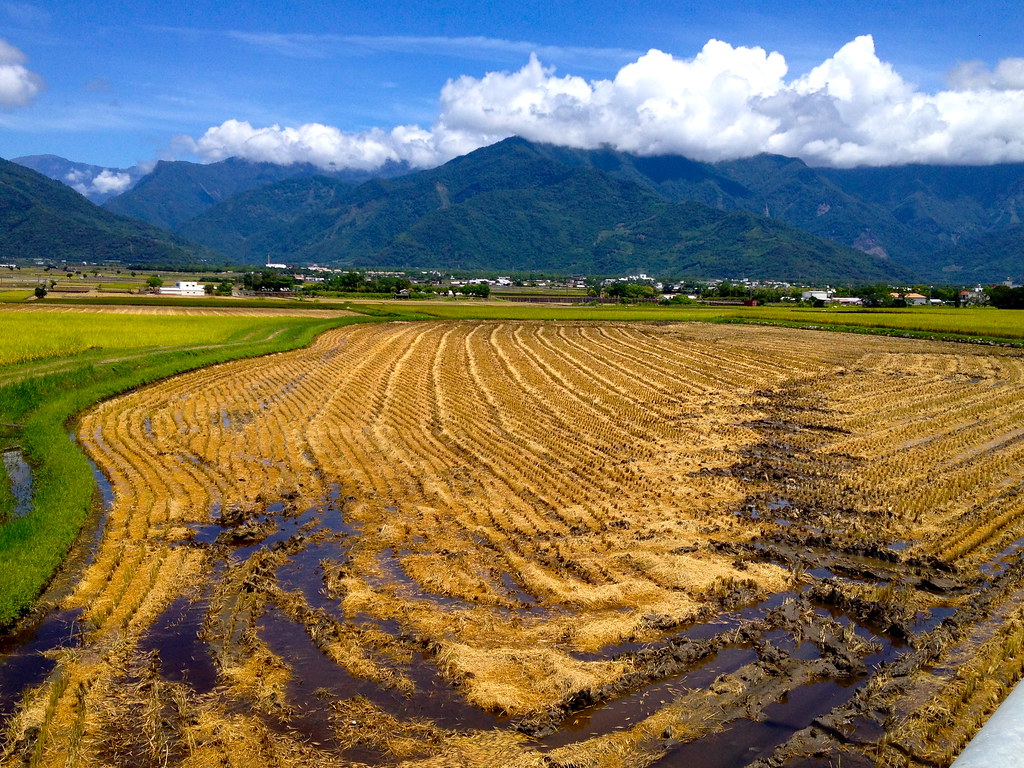
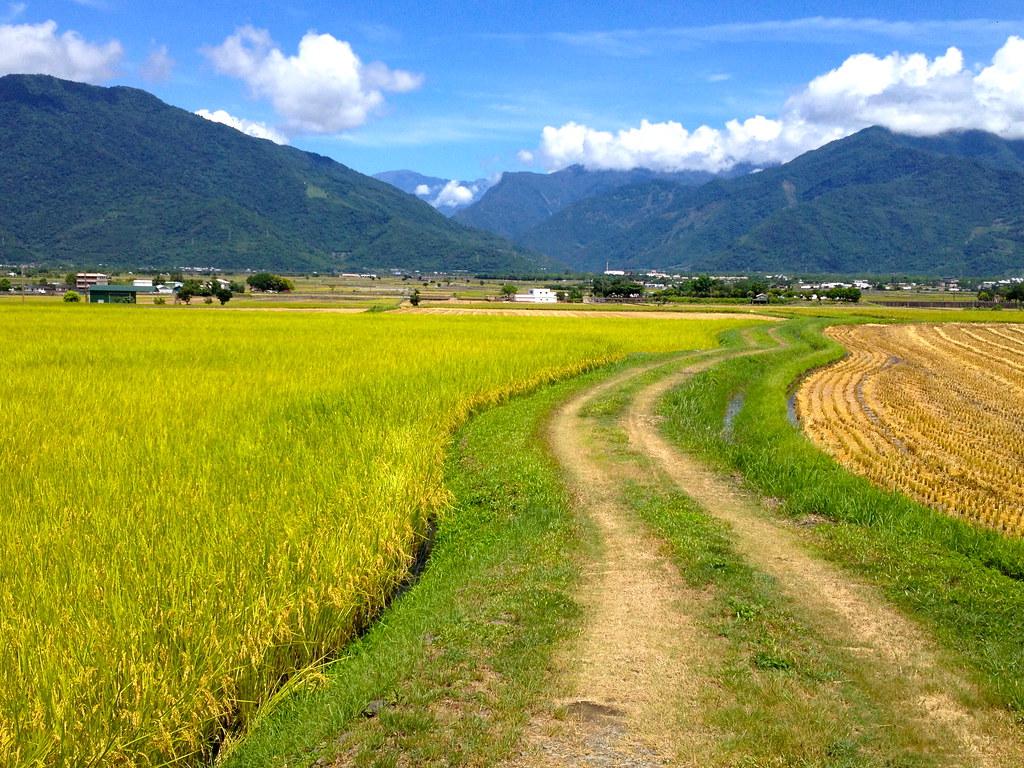
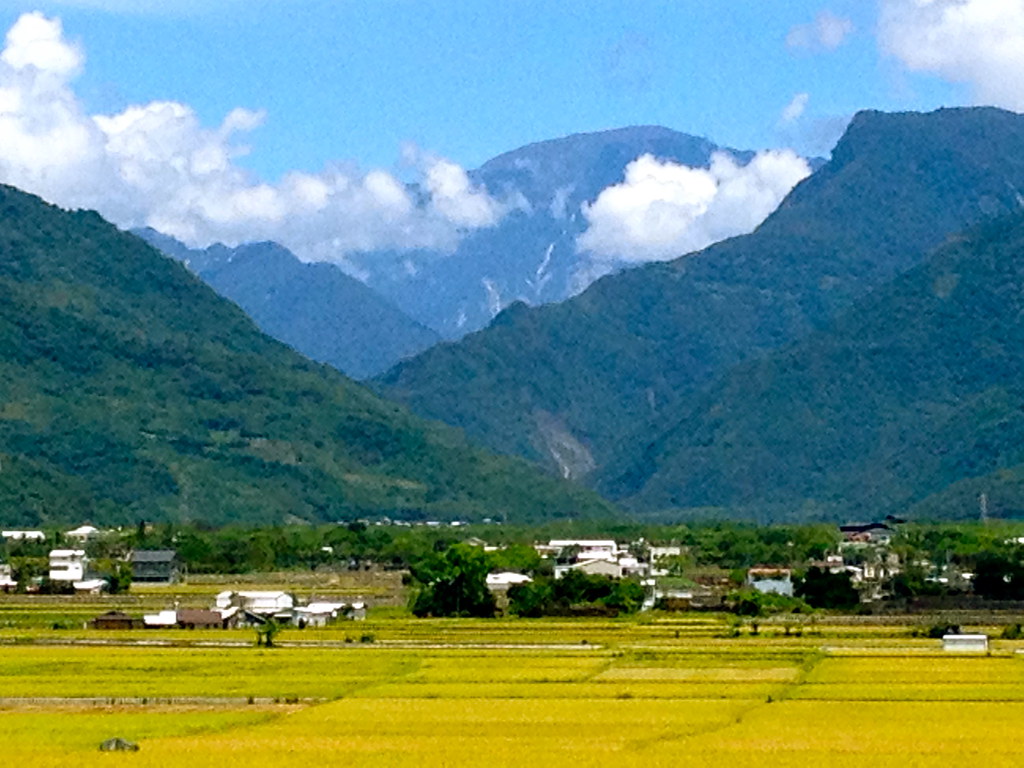
I was less impressed with Chishang's main tourist draw, the "Mr. Brown Highway" (which to me just sounds like a euphemism for a butthole, but hey). Apparently it was made famous in Mr. Brown coffee commercials, and then if you cycle down it enough you get to the "Takeshi Kaneshiro Tree" (金城武樹), because Takeshi apparently made a famous movie where he waits at that tree. The tree was knocked down in a typhoon but apparently has been re-planted. Because it's famous.
We, however, were not that impressed - it was pretty, yes, but the views just driving around were prettier, and it was clogged with tourists and annoying family bikes. So...we got a cup of coffee - interestingly, there was a Lavazza Cafe but not a Mr. Brown which is just a missed advertising opportunity - and went on our way.
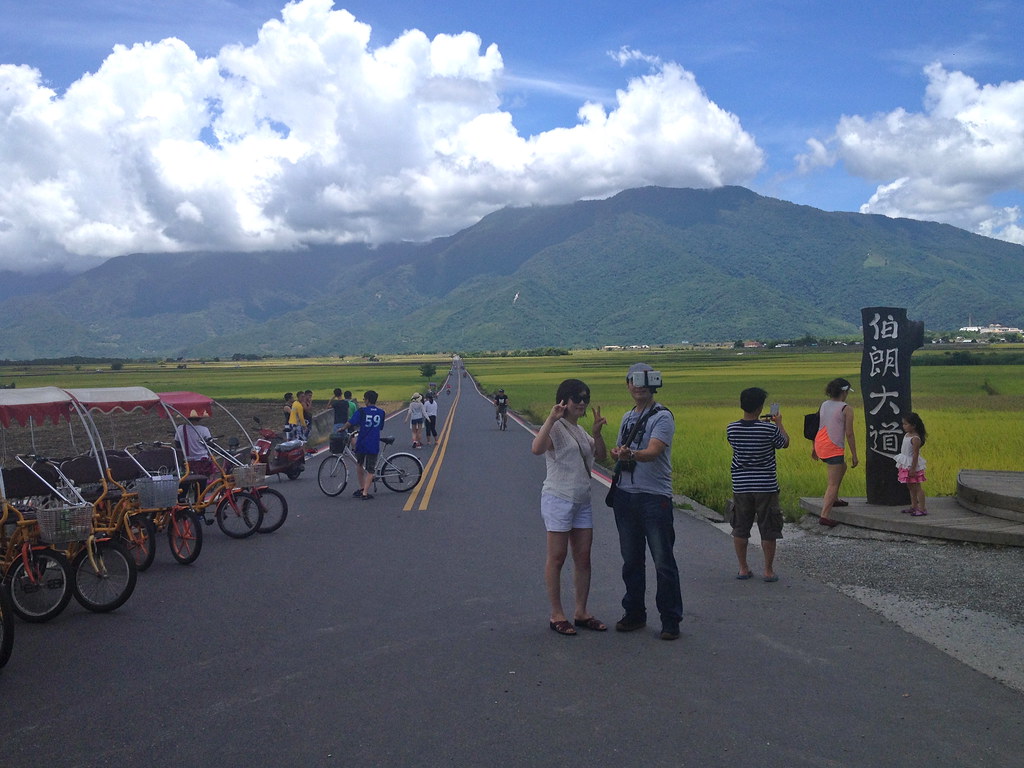
We got lunch further down the road in a no-name town (in fact I'm sure it did have a name, but I can't remember it nor be sure what that name is on a map) where we happened across a shop that makes those god-and-other-celestial-being statues for temple parades.
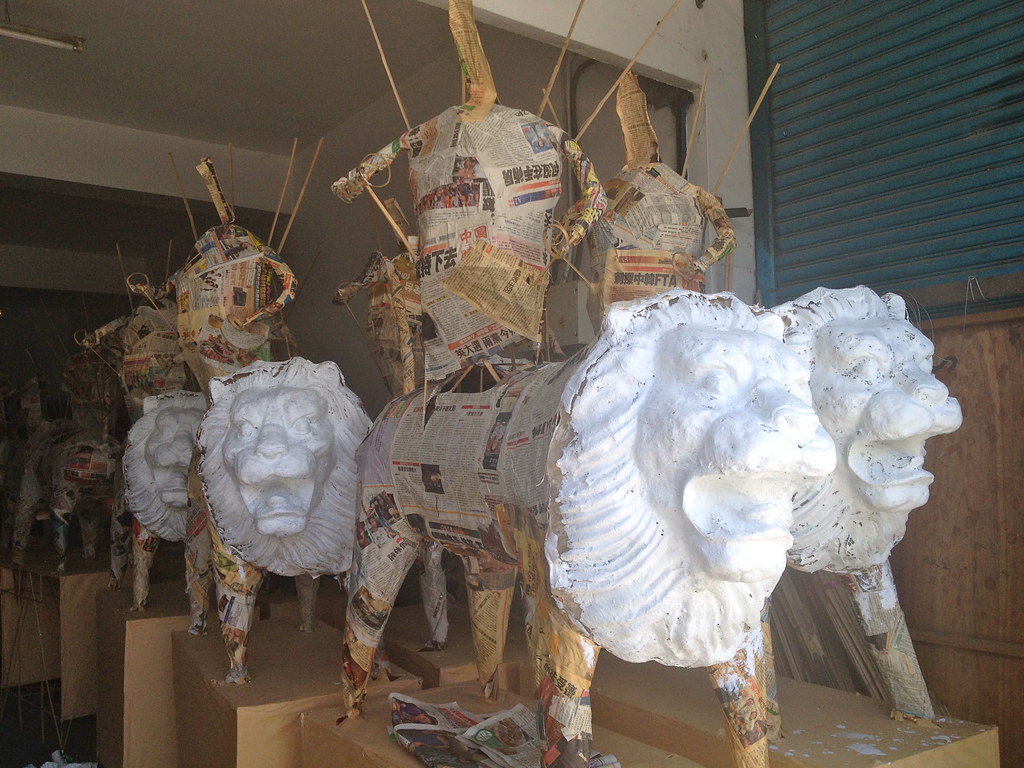
HELLO!
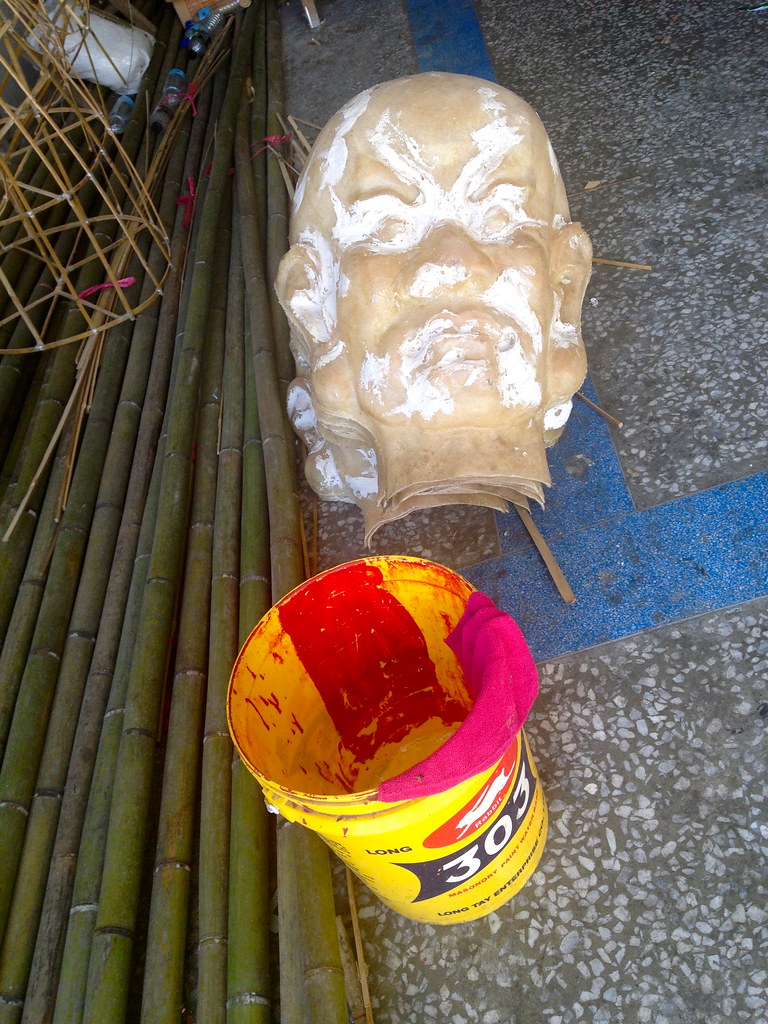
Then we took a turn up the mountains on Dongfu Road (東富路), which I think (?) is Highway #23? that led over the mountains and through paradise (including a place known as "Little Tianxiang" - 小天祥 - after its supposed resemblance to the famous Tianxiang in Taroko Gorge). Unable to stop at Little Tianxiang (there aren't many places to pull over), we stopped at this rickety little pavilion to enjoy the view:
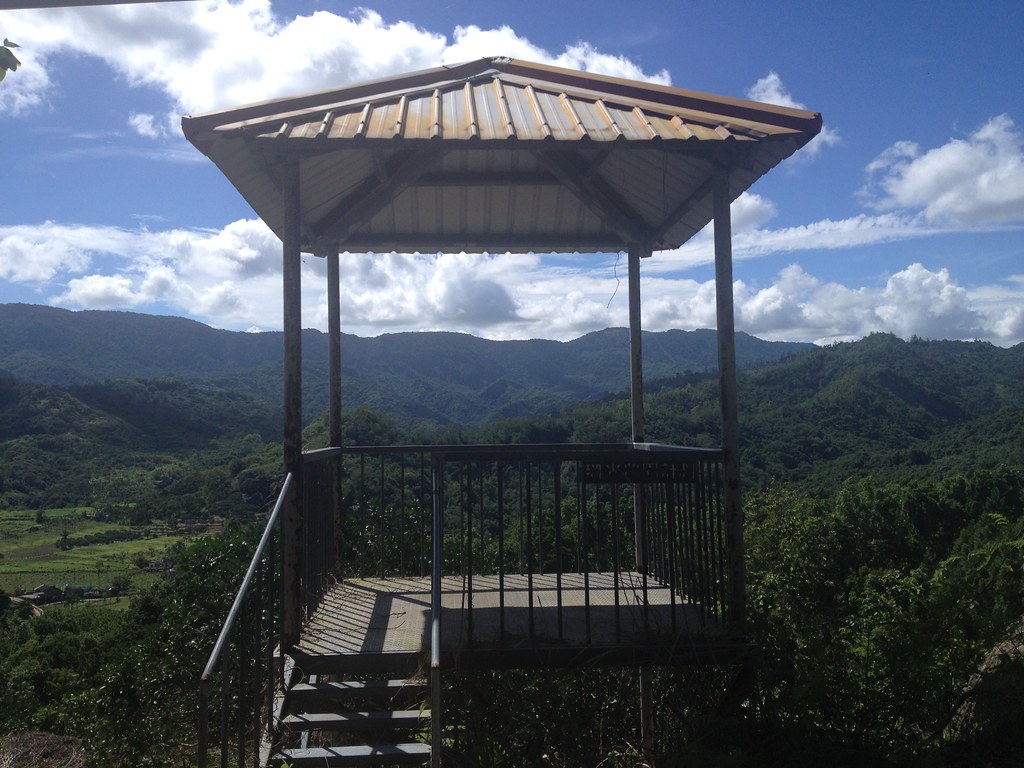
This time, I was more impressed. We passed mountain ridges, betel nut palms, rocky gorges and green valleys, taking a break at an area along the way known for its troupe of monkeys that can usually be found hanging out by the side of the road. These monkeys are so famous that tour buses actually stop for them.
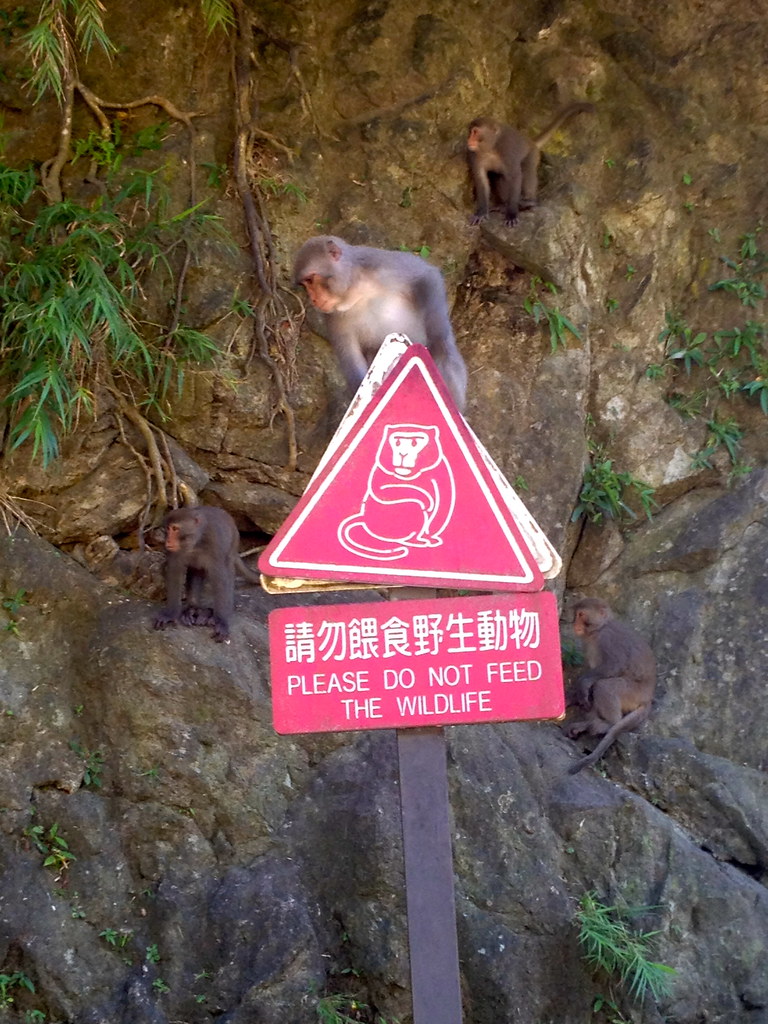
We wisely locked the doors to our rental car.
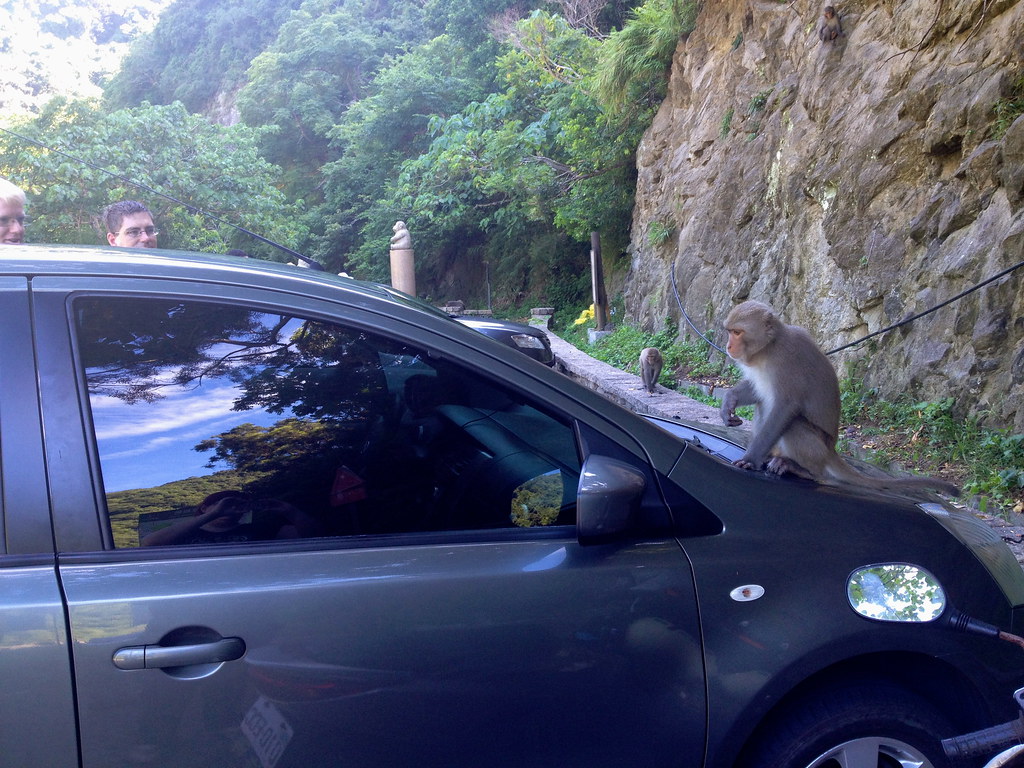
Dongfu Road comes down from the mountains and hits the coast at Donghe, which is something of a foreigner-populated surfer town. We continued south and took our next break in Jinzun (金樽), where there is a coffeeshop conveniently called Jinzun Coffee (金樽咖啡) with a stunning view of the beach.
I mean, look at that.
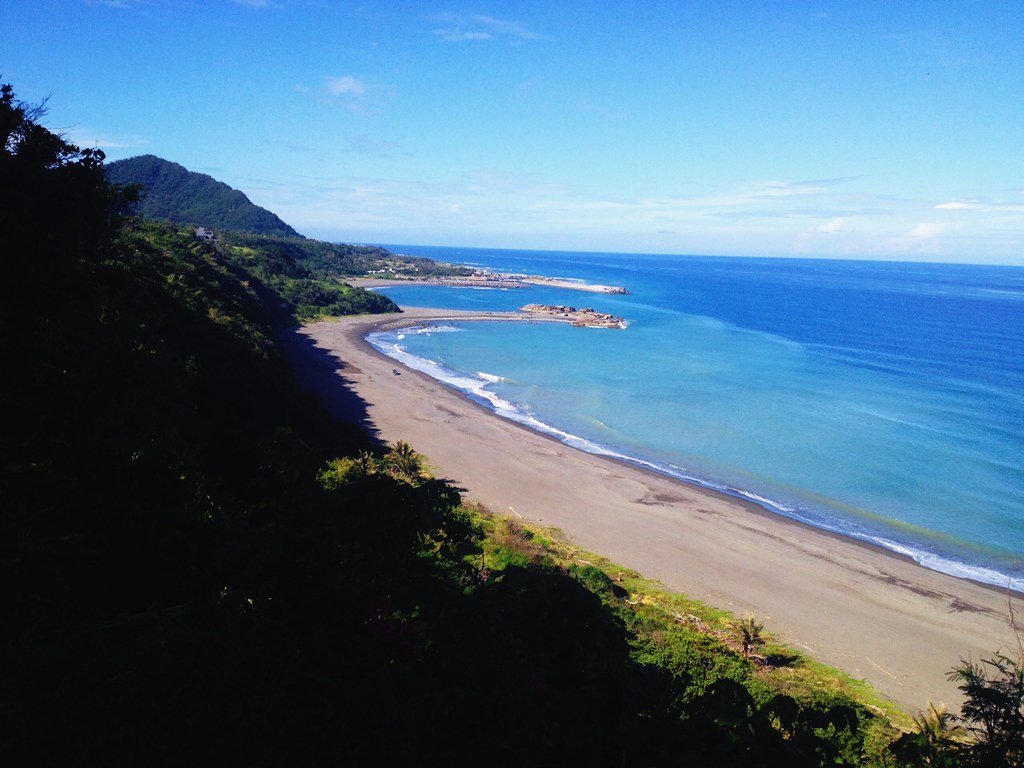
We walked down the cliff - there is a trail and stairs - to the actual beach - and it was nearly deserted (but not great for swimming).
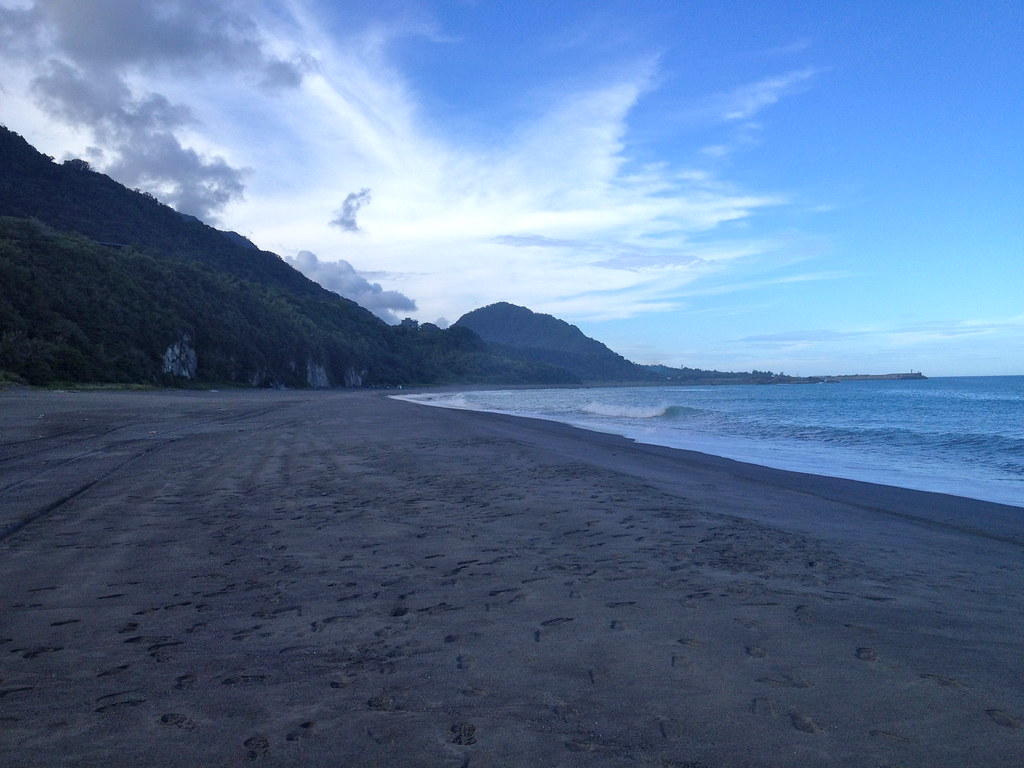
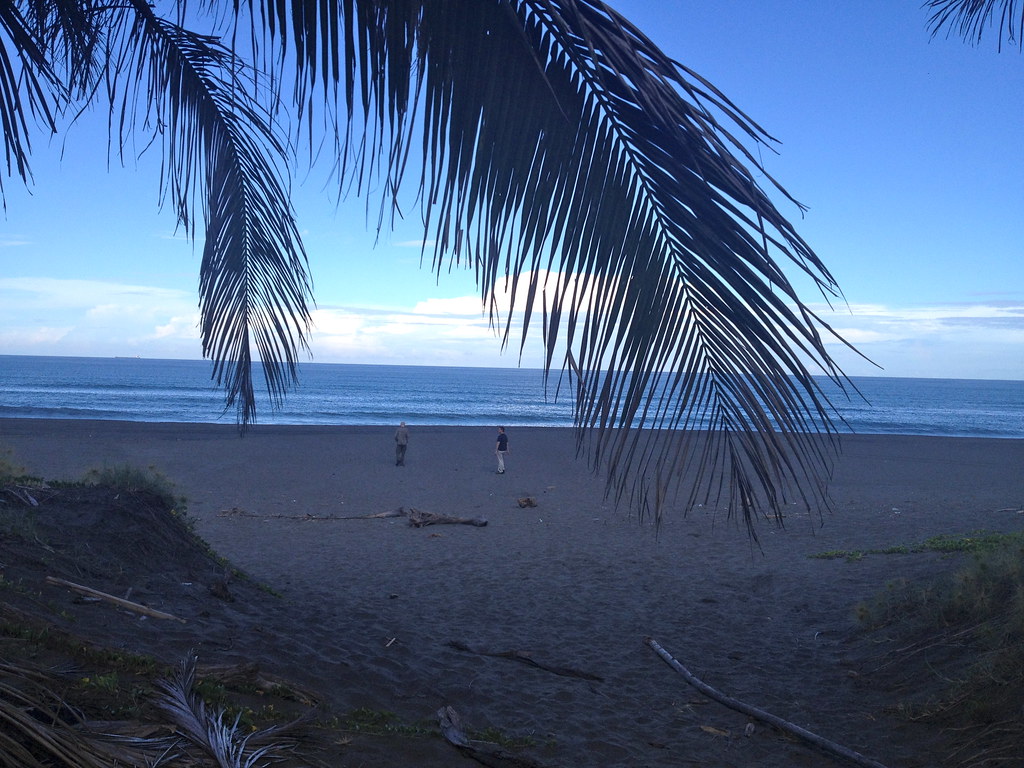
We then made our way down to the foreigner enclave of Dulan, where we didn't go to the beach as it was getting late, but we did stop at the Dulan Sugar Factory (a little post-industrial spot now filled with cute shops) to pick up some beer for later from an expat who brews it before having a cold drink and some dessert at a little cafe run by a Frenchman.
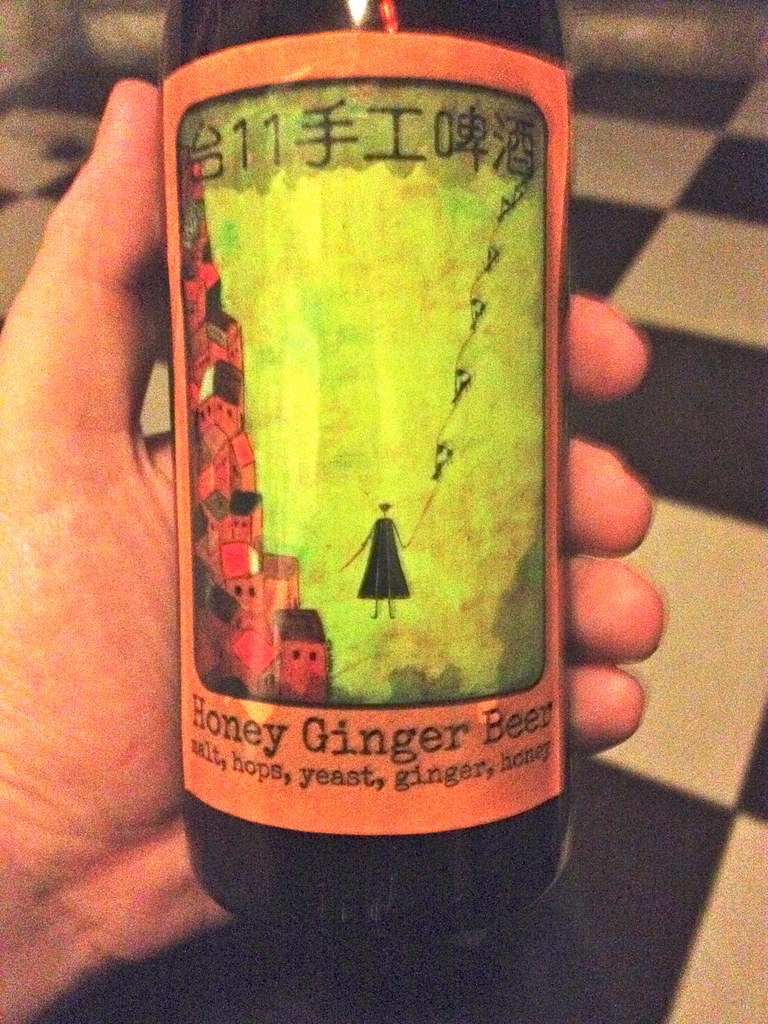
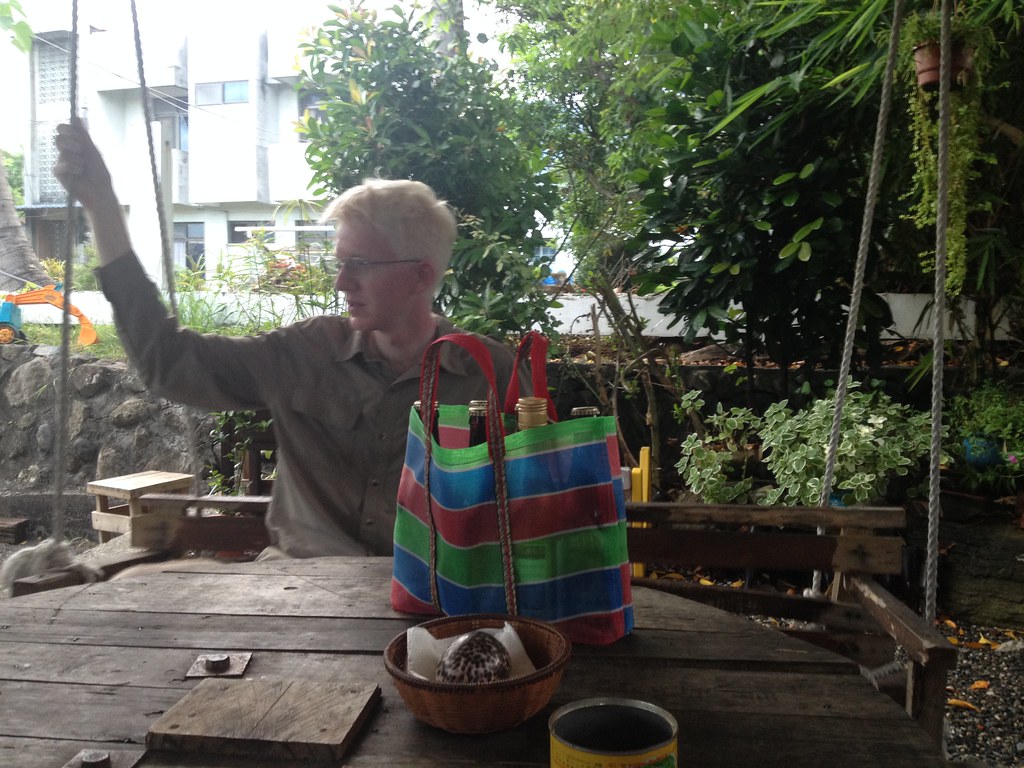
At this point the sun was truly setting, so we continued on past Taidong to the tiny Indigenous town of Taimali.
I didn't know what I wanted to do in Taimali, but I'd passed through on the train years ago and thought it'd looked just peaceful and lovely and scenic. We ended up at an unexpectedly great homestay, which from some Internet sleuthing to jog my memory I believe was this place - 濾池畔民宿. Afraid we were going to have to drink our Dulan beer in some dank little love-hotel like room with absolutely no charm or even proper lighting, we were delighted to get a large, breezy room with a strangely fantastic bathroom and massive balcony, with light and chairs.
So we showered, cracked open the beers, listened to music and talked until it was time for bed.
The next day, after a surprisingly good breakfast (toast and fresh fruit and French press coffee!) we drove through Taimali - not a lot to do but we got some good shaved ice, drove down to the beach, walked around a bit, found an old temple and chatted with a 94-year-old Mainlander who came with the KMT diaspora, married an Indigenous woman and settled here.
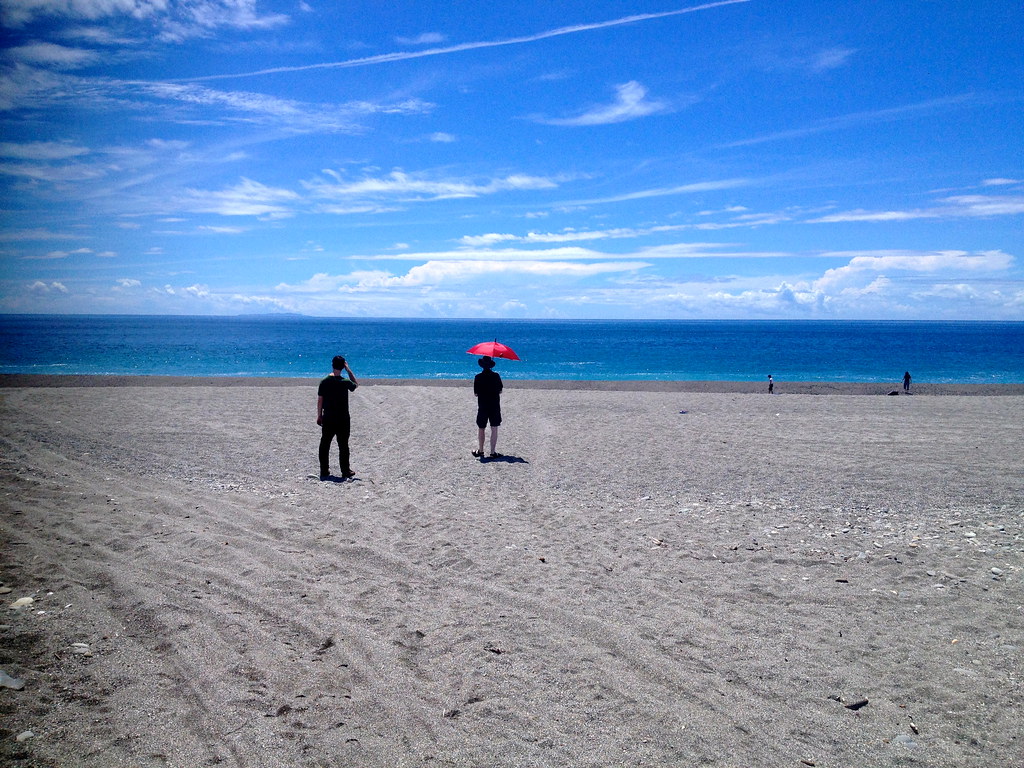
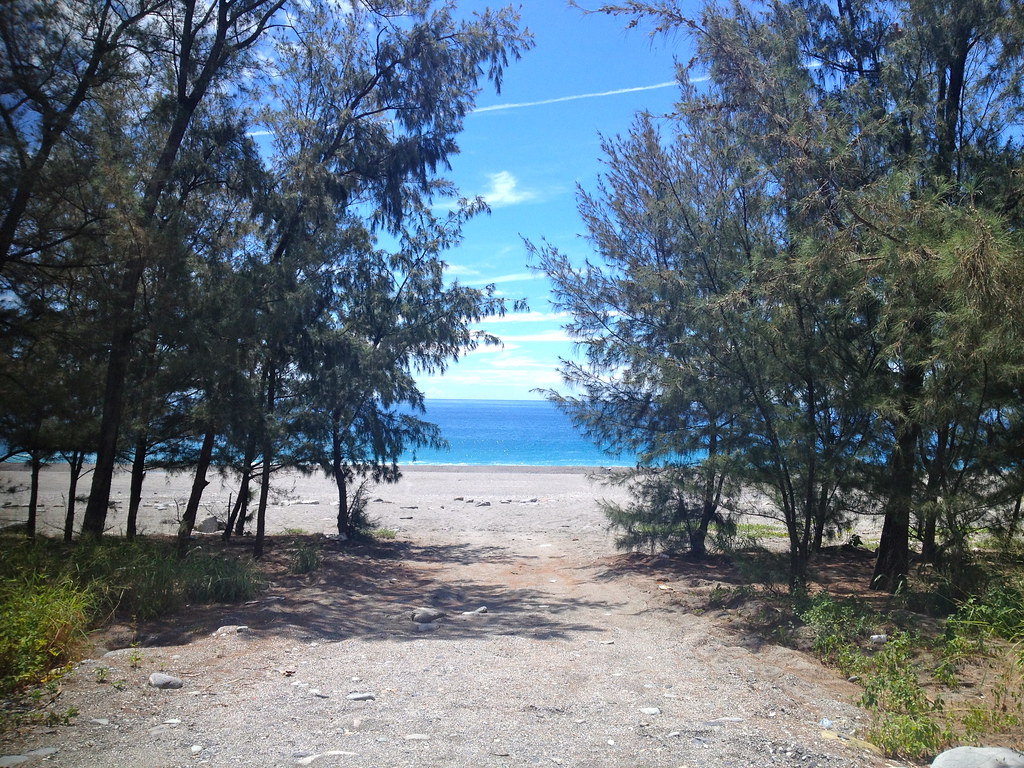
Downtown Taimali isn't exactly hopping:
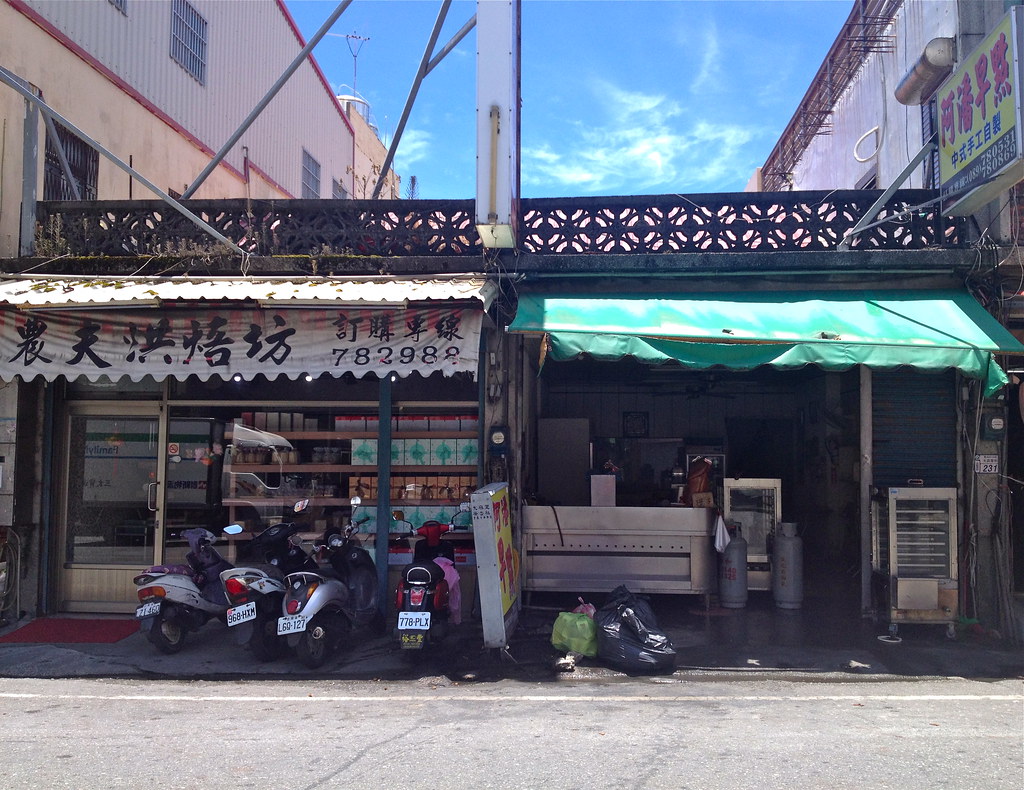
Then we drove up into the hills behind the town looking for lunch. Joseph had read in a local guidebook that there was a well-known Indigenous restaurant up here. On the way we passed an adorable little church:
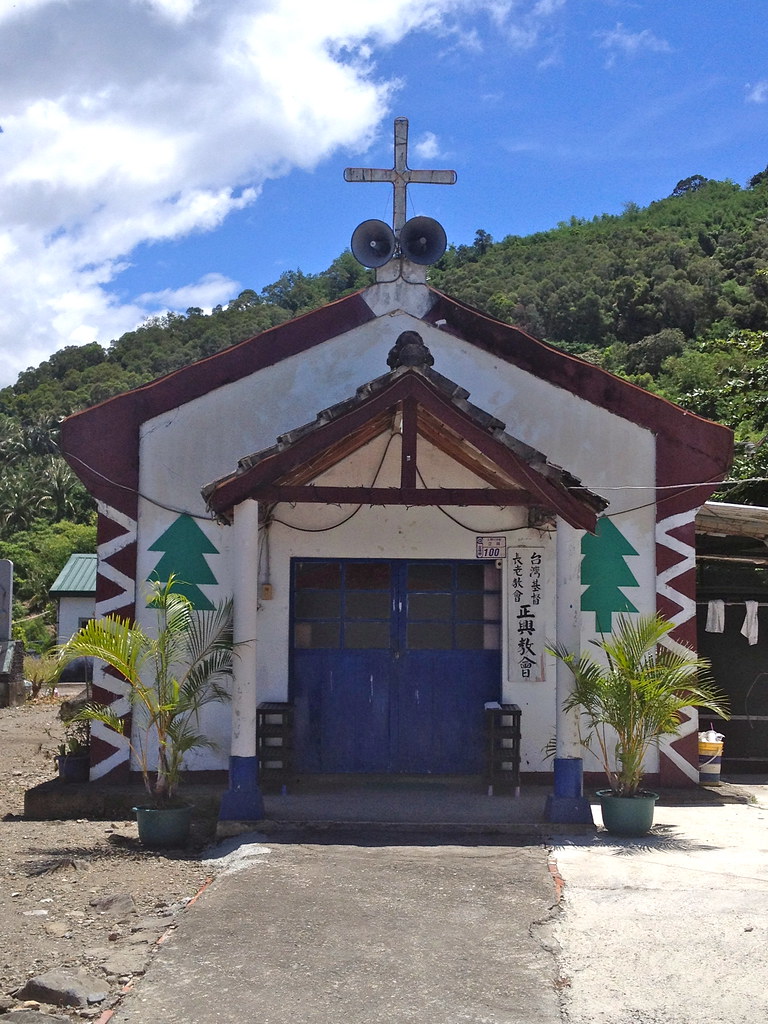
And some murals.
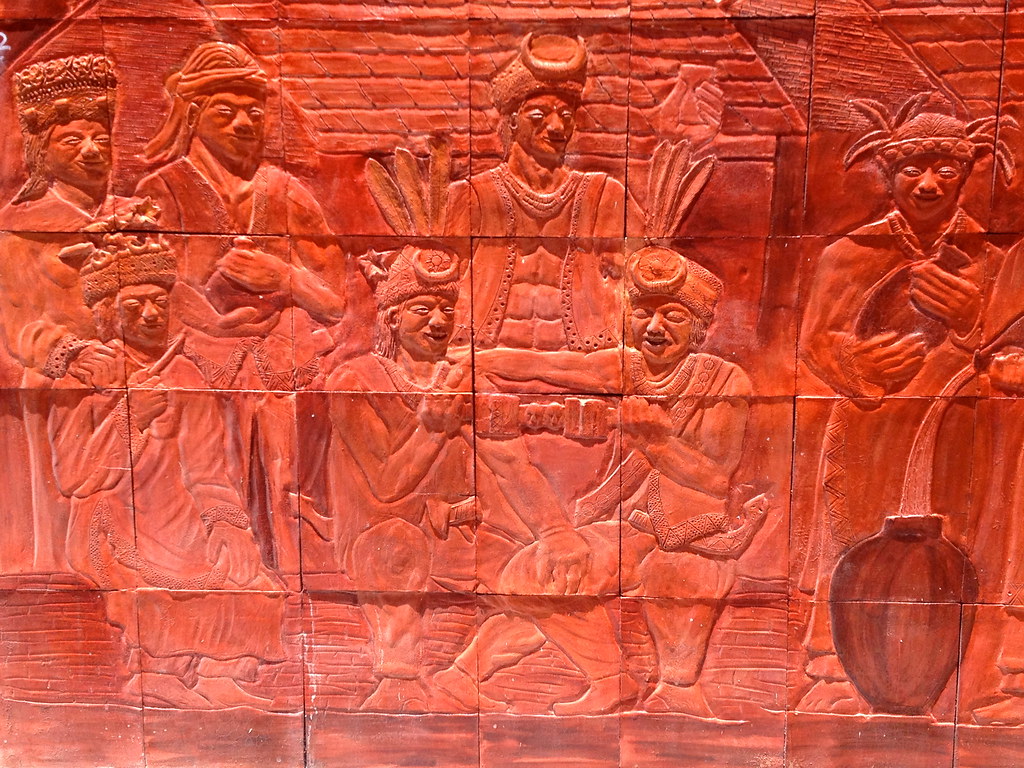
The restaurant was called "Good Place" (好地方) which I love for its simplicity. And it really was good - it's the sort of place where you don't get a menu, they just bring you enough food for your party. What's sad is that I can't remember exactly what we ate - although I know I avoided the dish full of bitter gourd - but that it was damn good. I'd recommend it, if you can find it. Perhaps not for dinner when the karaoke starts up though.
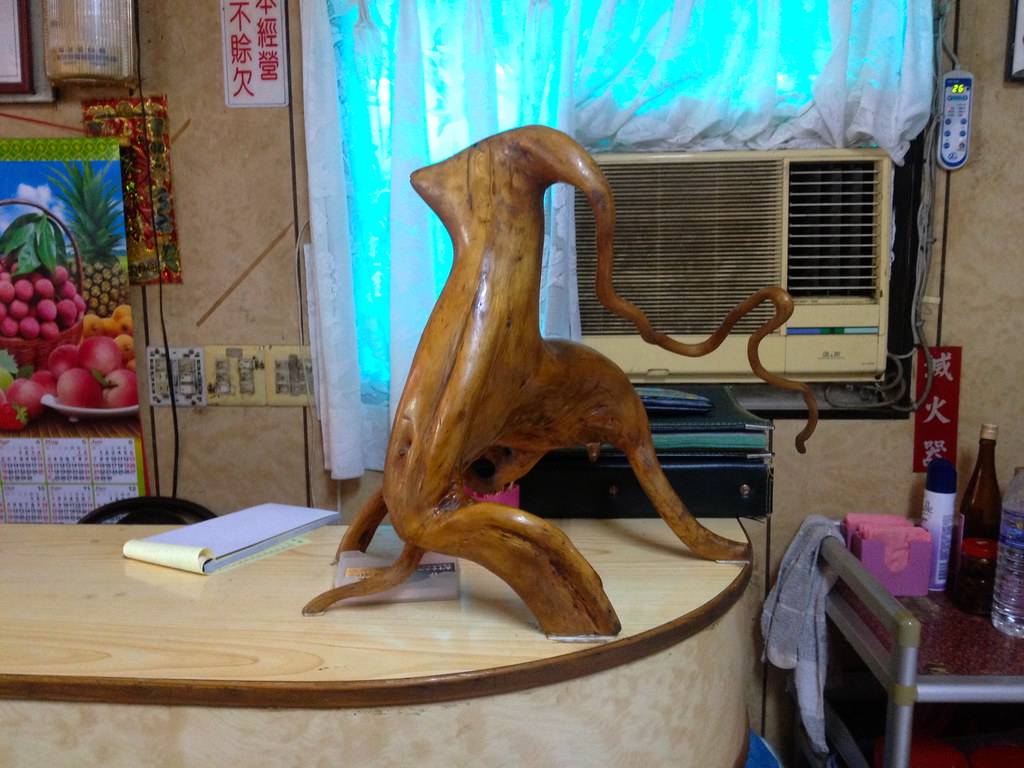
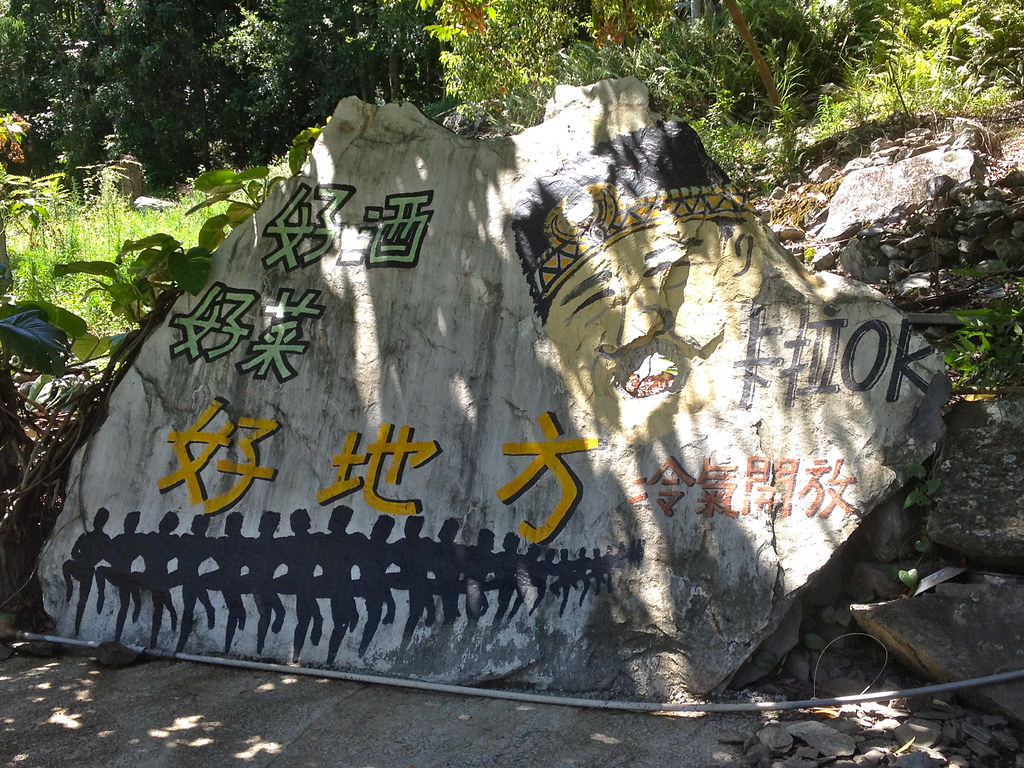
Nearby are more Indigenous villages, some in government-built housing. We didn't linger, though I did stop to admire some particularly inspired artwork.
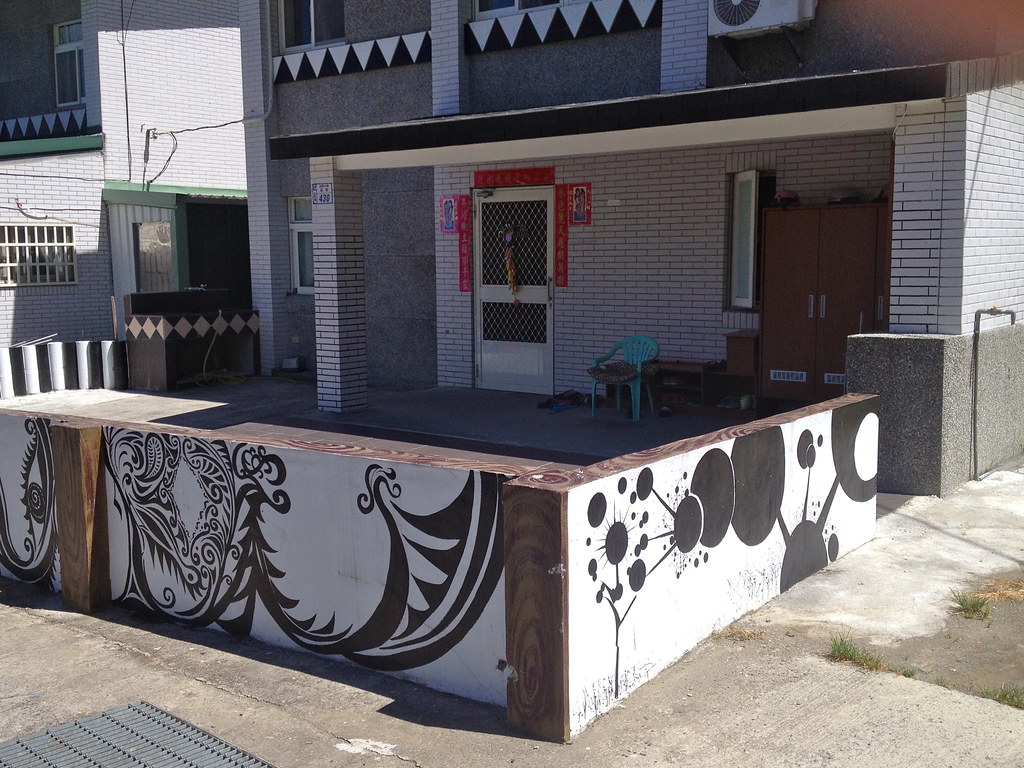
With some time to kill we drove up further into the mountains for some great views before the roads got too narrow and we had to turn back.
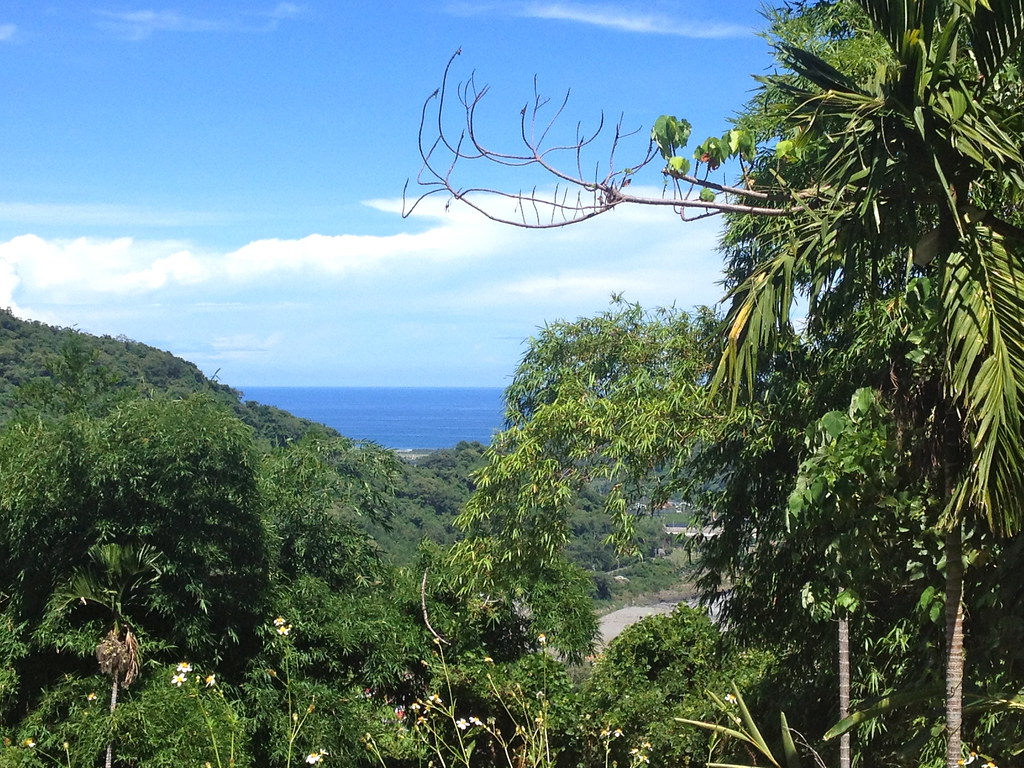
Our train left that evening for Taidong but we still had time to kill - so we drove a bit north of the city to a place called "Little Yehliu" (among a few other stops). I was really less than impressed:
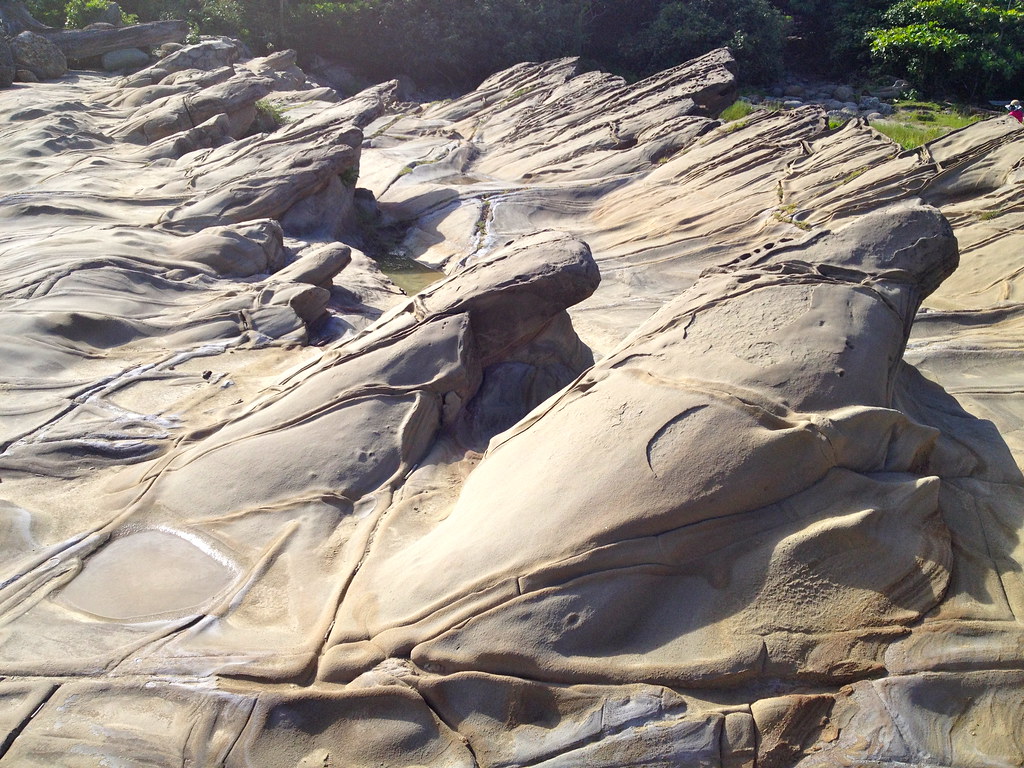
I mean it was fine and all but regular Yehliu is way cooler.
So, we turned around and headed back to the train station, dropped off the car and hopped on the Puyuma.
All in all I'd say it was a great trip!

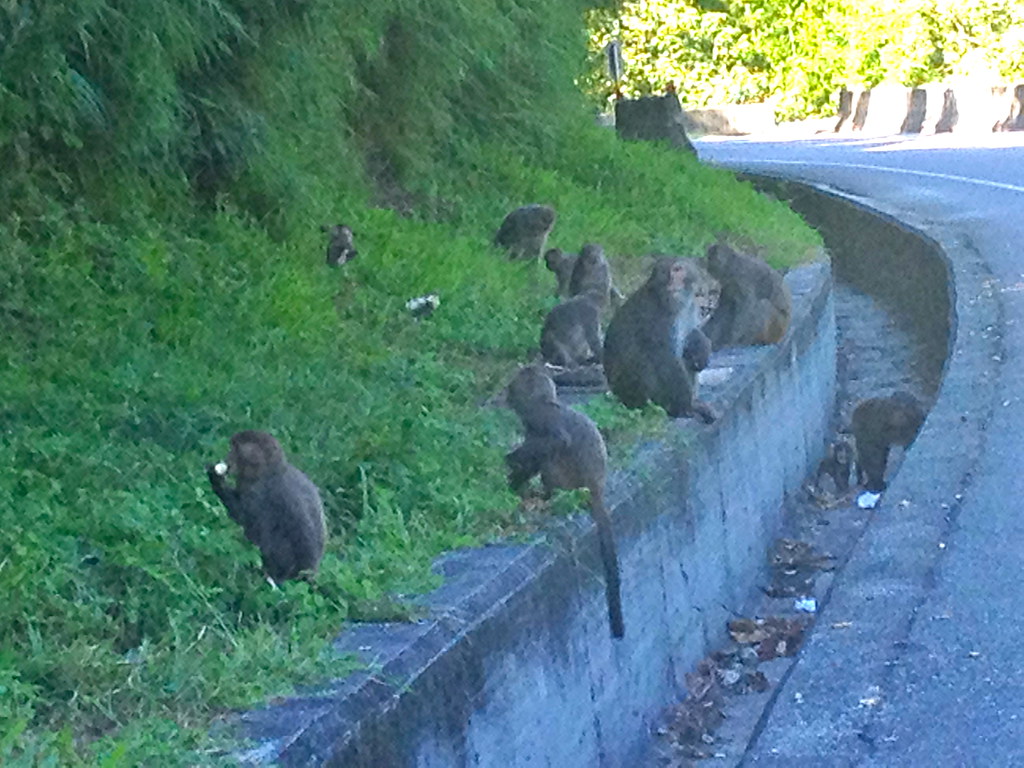
The homestay in Guanshan was called 大瀚山莊花園民宿
ReplyDeleteAlso, lunch the day after Guanshan was in Chishang's town center.